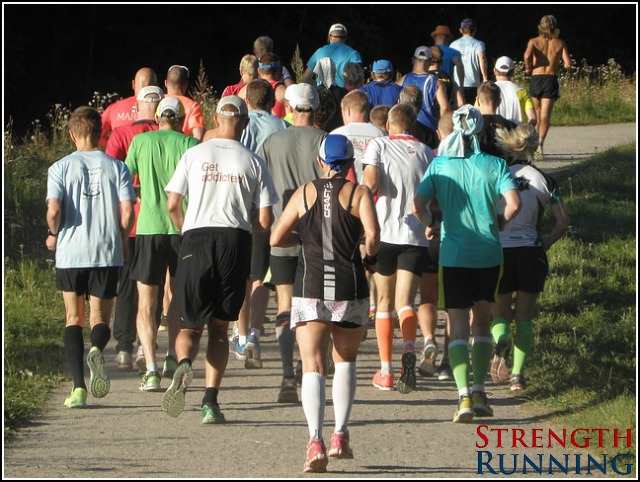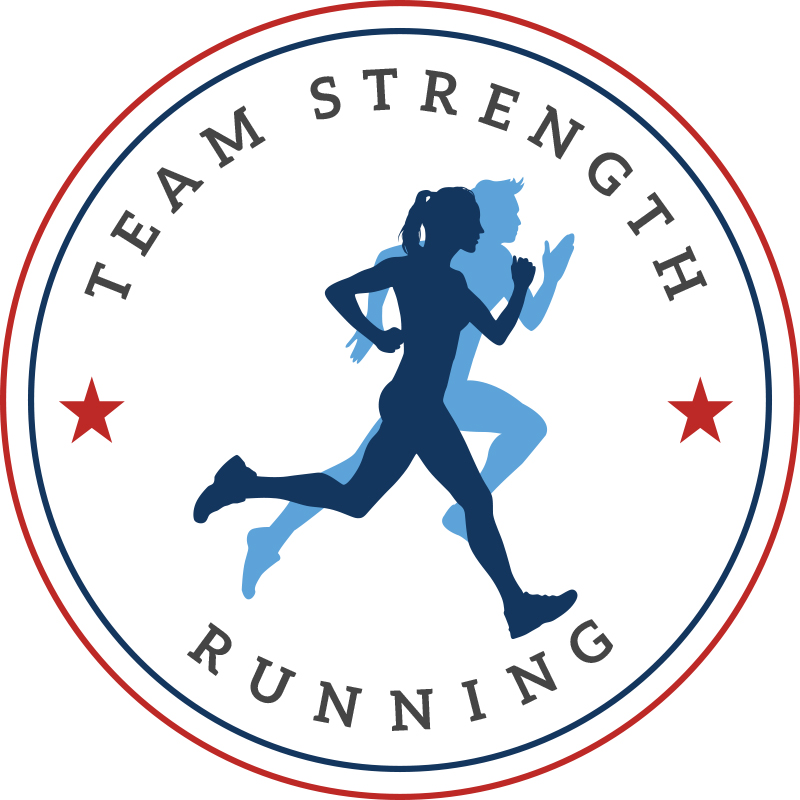Running motivation: sometimes you have it, sometimes you don’t. But can you create it out of thin air?

Fast runners know that motivation can be engineered. It can be supported, built, and expanded. You don’t have to just “hope” that your motivation to run will be there in the morning when the alarm blares…
But motivation is fickle and unpredictable. Some days, you’re ready to crush a track workout or long run. Other days, you can barely bring yourself to jog for 30 minutes.
You don’t have to be a hostage to the whims of your running motivation, though. Relying on motivation is a fool’s errand.
Instead, you can structure your running life in such a way that missed runs or skipped workouts are virtually nonexistent.
You can do this without:
- the latest productivity app
- getting up at four in the morning every day
- joining a convent or becoming a monk…
- “biohacking” your way to the podium
In this article, we’re going to discover a simple framework for automatically improving your running motivation and increasing the chances that you train hard – so you can race faster.
And it all starts with other people in your life.
Running Motivation is About PEOPLE
“People often say that motivation doesn’t last. Well, neither does bathing. That’s why we recommend it daily.” – Zig Ziglar
My first run ever was a 3-mile loop from my high school’s field house around the neighborhood. I was 14 and cocky so clearly, I was ready to crush the first day of cross country practice.
But reality hits you like mile 20 in a marathon. Less than halfway through, I resorted to walking. By the end of the loop, I had walked nearly a quarter of the distance and didn’t think I’d ever run again.
If left to my own devices, I probably would have quit. But…
- My mother told me I couldn’t quit after one day (thanks mom!)
- My coach said I’d never enjoy speed if I didn’t get in better shape first
- My friends called me a loser (thanks fellas)
- My teammates knew I simply needed more consistency
The end result is that I stayed on the team, becoming one of the faster runners on the Junior Varsity squad after a few months of patient work. By the end of the season, I was running sub-6:00 miles and having a blast.
What would I be doing now if I had given in to that voice complaining in my head?!
Clearly, the people in my life kept me on track. They nudged me in the right direction – and their support means everything.
In fact, the people you surround yourself with have the potential to improve your performances by up to 30%!
Inspired by Brad Stulberg, a performance consultant and author of Peak Performance, I recorded that video to share my experiences with having a “tribe of support” and demolish the myth that success happens alone.
It most certainly does not.
Any runner who’s achieved big goals has relied on a network of support:
- Other runners – for both running motivation and guidance
- Coaches and mentors (even if you only read their books)
- Doctors, physical therapists, masseuses, and sports psychologists
- Podcasts, music, and other aids to get you through workouts
- Your spouse! Endurance athletes always need a supportive partner
These aids make big performances possible. They get you through the hard times and keep you moving in the right direction during the good times.
If you don’t have that community of support, you’re at a disadvantage. But Strength Running can help!
Let’s also be clear: this isn’t just my opinion – it’s also supported by science.
The Science of Peer Motivation
No matter how we look at the role of other people in an individual’s success, the science is clear: your “tribe of support” makes it easier to succeed.
From academics to sports to business, your network can literally make or break your career.
Consider that kids significantly influence other kids to get involved in sports (source) and that friendships increase children’s motivation to engage in physical activity (source 1, source 2, and source 3).
Positive peer pressure works in academics, too (even when that support happens online).
As famed business guru Jim Rohn once said:
You are the average of the five people you spend the most time with.
And if we look at famous coaches and athletes over the decades, this sentiment was known before the science could play catch-up:
“Individual commitment to a group effort–that is what makes a team work, a company work, a society work, a civilization work.” – Vince Lombardi
“Talent wins games, but teamwork and intelligence win championships.” – Michael Jordan
“The strength of the team is each individual member. The strength of each member is the team.” – Phil Jackson
“Great teamwork is the only way we create the breakthroughs that define our careers.” – Pat Riley
When the best athletes, coaches, and science confirm that the people around you have an overwhelming impact on your success, we should stop and pay attention.
Careful: It Works the Other Way Too
So, we’ll all be Olympians if we get a coach and a team, right?
If only!
In fact, surrounding yourself with the wrong people can be more disastrous than being a Lone Wolf.
The other day I was looking at the r/running board on Reddit and many of the threads made me cringe. The advice you get from random strangers on an internet forum is not always ideal!
Here is a seemingly simple question, “How many times per week should I be running?”

But the answers range from “every day” to a long discussion about the use of hip flexors. Both answers are misleading; they’re either too aggressive or irrelevant.
Another cringe-inducing thread was about preventing injuries. Can you guess the answers?
- “The vast majority of injuries are caused by poor form” (no, they’re caused by training errors)
- “Get your shoes at a local, non-chain running store” (how does this help with injuries?)
- “Please, please take Vitamin D” (this literally has nothing to do with running injuries)
- “Run barefoot. If not all the time, at least do it a few times a week.” (ugh NO! Barefoot running is a tool, not a lifestyle)
Differentiating between the signal and the noise is something that only someone with a lot of experience can do well.
The quality of your future training depends on it.
How to Use This Info to Your Advantage
“If everyone is moving forward together, then success takes care of itself.” – Henry Ford
Now that we understand that success doesn’t happen in a vacuum – and indeed, it’s reliant on your “tribe of support” – then it’s critical to find that tribe.
There are a lot of options:
Use the “Find a Club” Tool at RRCA
If you want to join a local running club that meets in your city, the Road Runner’s Club of America has a helpful search tool.
Local clubs offer a lot to their running community, including races, beginner running programs, group runs for extra running motivation, and coaching opportunities.
If you’re planning on using a local club for a coach or training guidance, you likely won’t get the personalized attention that you would expect from a 1-on-1 or private coach.
But you can’t beat group runs, especially when they tour some of the best running routes in your area.
Become Self-Taught
There’s nothing sexier than a lifelong learner. Get engaged with the topic of running and there’s no doubt that you’ll improve.
After all, knowledge is a competitive advantage: you’ll make fewer training mistakes, more strategic decisions, and ultimately race a lot faster.
I don’t think you necessarily need “in-person” mentors – learning from others from afar can be effective as well.
- Read a lot of running books (especially by authors that you trust and respect)
- Follow inspiring (and good) coaches on social media (I recommend Jonathan Marcus and Mario Fraioli among many others)
- Get your own coaching certification (I recommend either USATF or RRCA)
- Attend running camps, conferences, retreats, and other opportunities to learn more about the sport
The more involved and engaged you are with the sport of running, the more motivation and knowledge you’ll be able to give to it.
Join a Virtual Community
Not everyone can attend the weekly workout with the local running club or get their coaching certification (trust me, much of the class can be quite boring!).
A good alternative is to harness the power of the web to learn, be inspired, and get the support you need to succeed.
Even though you’re not actively running with an online “team” you can still rely on them for running motivation and getting all of your questions answered.
Over the last few years, SR’s own Team Strength Running has been helping hundreds of members reach a wide variety of goals:
- John recently set a nearly 2-minute personal best in the 10k (and Ken a 3+ minute PR)

- Stephan ran her debut ultramarathon!
- Colleen beat her marathon goal time by 8 minutes
- Karina has hit 50+ miles per week for two weeks in a row
No matter your goal, we can help you get there with live coaching calls, a library of 30+ training plans, new expert interviews every month, and most importantly: a team of runners just like you to hold you accountable and skyrocket your running motivation.
We don’t open often, so sign up here to learn more about our community and how we can help you achieve more with your running.
You’ll be the first to know when we open the doors for new members.